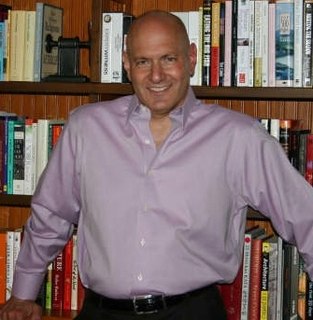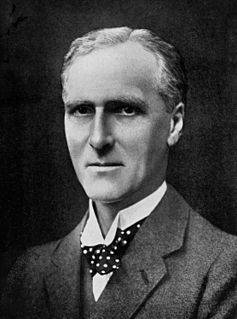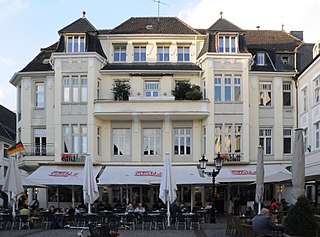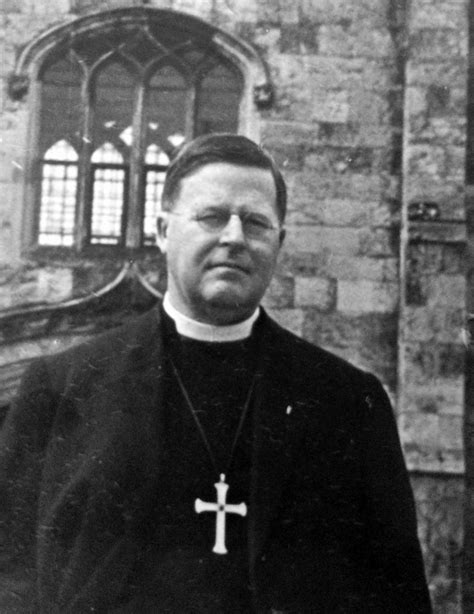A Quote by Emo Philips
The question is absurd: when you ask, 'If God is both all good and all powerful, why then does He allow suffering?', what you are really asking is, 'If God is both all good and all powerful, why then can He not make me (the questioner) - who is just as much a part of a universe in which there is suffering as is any other part - be at the same time the exact same questioner, but one who is now part and parcel of a universe in which there is no suffering?' Which, reduced down, is the same thing as asking, 'Why can there not be, at the same time, X and the preclusion of X?'
Related Quotes
That which should distinguish the suffering of believers from unbelievers is the confidence that our suffering is under the control of an all-powerful and all-loving God. Our suffering has meaning and purpose in God's eternal plan, and He brings or allows to come into our lives only that which is for His glory and our good.
Ayurveda is the science of life and it has a very basic, simple kind of approach, which is that we are part of the universe and the universe is intelligent and the human body is part of the cosmic body, and the human mind is part of the cosmic mind, and the atom and the universe are exactly the same thing, but with different form, and the more we are in touch with this deeper reality, from where everything comes, the more we will be able to heal ourselves and at the same time heal our planet.
We have become terribly vulnerable, not because we suffer but because we have separated ourselves from each other. A patient once told me that he had tried to ignore his own suffering and the suffering of other people because he had wanted to be happy. Yet becoming numb to suffering will not make us happy. The part in us that feels suffering is the same as the part that feels joy.
I also like to look at the dynamic that takes place between religion and science because, in a way, both are asking the same questions: Who are we? Where do we come from? Why are we here? Where are we going? The methodologies are diametrically opposed, but their motivation is the same; the wellspring is the same in both cases.
In science we see progress. In art there is no progress. In art the questions have always been the same. From the beginning of time till now, we are always asking the same questions. There are very few. We are looking for God, we are asking why we die, we are contemplating sex and the beauty of nature. The only thing that changes is that, in each period of questioning, we speak with the language of our time.
I'm a pretty solid Christian. But even as an altar boy, I was always asking the bigger questions--you know: if God is, in fact, good, what is all this death I see? And if God is gentle, what is all this suffering I see? I've found some of the answers in Eastern religion. It explained my Christianity to me. Good and evil are the same thing. You can't have one without the other. It's the balance, it's the temperance of things.
Evil is neither suffering nor sin; it is both at the same time, it is something common to them both. For they are linked together; sin makes us suffer and suffering makes us evil, and this indissoluble complex of suffering and sin is the evil in which we are submerged against our will, and to our horror.
Whence came I, whither go I? Science cannot tell us a word about why music delights us, of why and how an old song can move us to tears. Science is reticent too when it is a question of the great Unity – the One of Parmenides – of which we all somehow form part, to which we belong. The most popular name for it in our time is God – with a capital ‘G’. Whence come I and whither go I? That is the great unfathomable question, the same for every one of us. Science has no answer to it.
Prayer brings to us blessings which we need, and which only God can give, and which prayer can alone convey to us ... This service of prayer is not a mere rite, a ceremony through which we go, a sort of performance. Prayer is going to God for something needed and desired. Prayer is simply asking God to do for us what he has promised us he will do if we ask him ... Asking is man's part. Giving is God's part. The praying belongs to us. The answer belongs to God.
But the people at home if we're doing a town meeting or a town format. You have to answer the question that is asked. And what people at home are gauging how does this candidate respond to the questioner? Do they show respect to the questioner? Do they try to understand why the questioner is asking that? Do they respond to the question? Is there a human connection between the two? It's where Barack Obama beat Mitt Romney in 2012. He lost the voters on who was a stronger leader, who had a vision for the future, but on who cares about people like me, he trounced Mitt Romney.


































